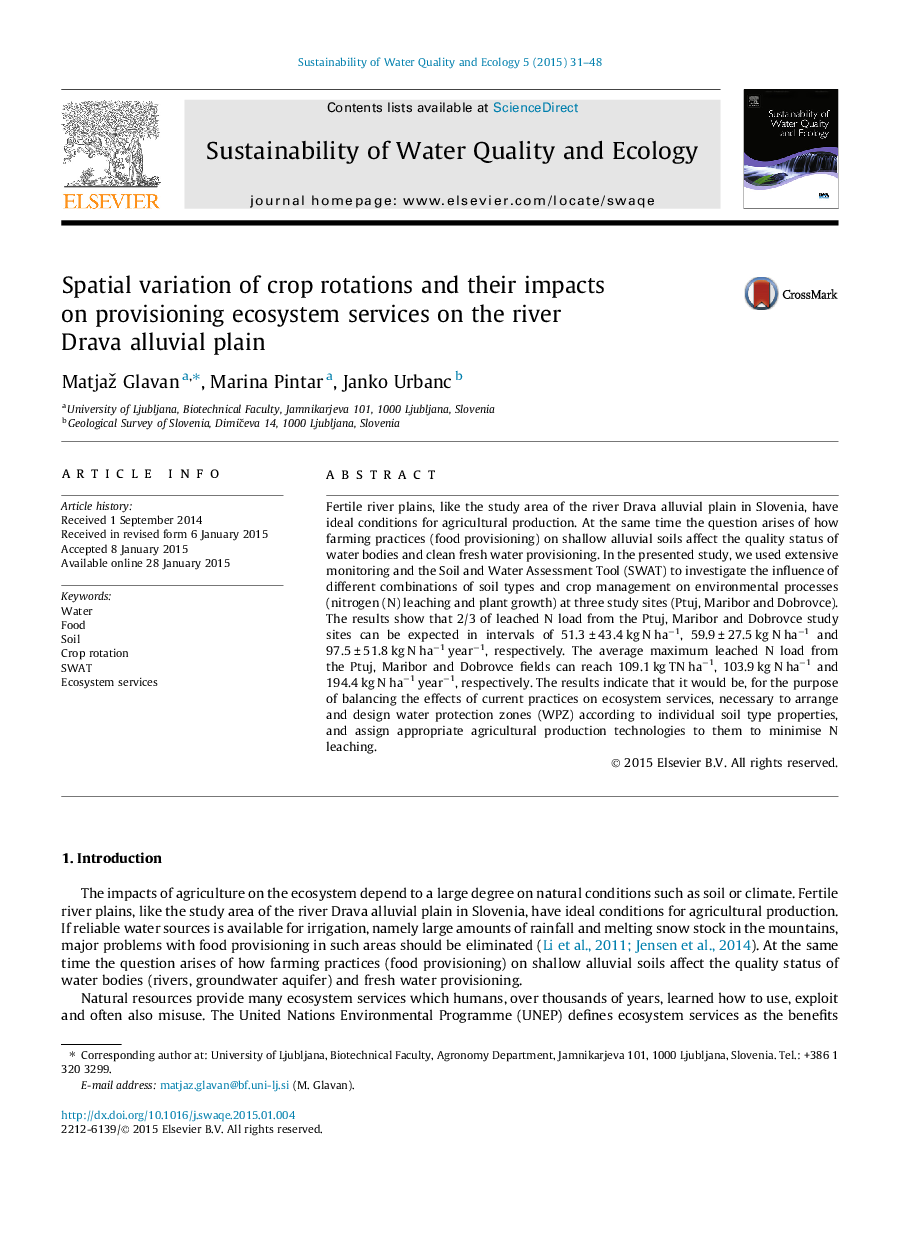| Article ID | Journal | Published Year | Pages | File Type |
|---|---|---|---|---|
| 1064640 | Sustainability of Water Quality and Ecology | 2015 | 18 Pages |
Fertile river plains, like the study area of the river Drava alluvial plain in Slovenia, have ideal conditions for agricultural production. At the same time the question arises of how farming practices (food provisioning) on shallow alluvial soils affect the quality status of water bodies and clean fresh water provisioning. In the presented study, we used extensive monitoring and the Soil and Water Assessment Tool (SWAT) to investigate the influence of different combinations of soil types and crop management on environmental processes (nitrogen (N) leaching and plant growth) at three study sites (Ptuj, Maribor and Dobrovce). The results show that 2/3 of leached N load from the Ptuj, Maribor and Dobrovce study sites can be expected in intervals of 51.3 ± 43.4 kg N ha−1, 59.9 ± 27.5 kg N ha−1 and 97.5 ± 51.8 kg N ha−1 year−1, respectively. The average maximum leached N load from the Ptuj, Maribor and Dobrovce fields can reach 109.1 kg TN ha−1, 103.9 kg N ha−1 and 194.4 kg N ha−1 year−1, respectively. The results indicate that it would be, for the purpose of balancing the effects of current practices on ecosystem services, necessary to arrange and design water protection zones (WPZ) according to individual soil type properties, and assign appropriate agricultural production technologies to them to minimise N leaching.
